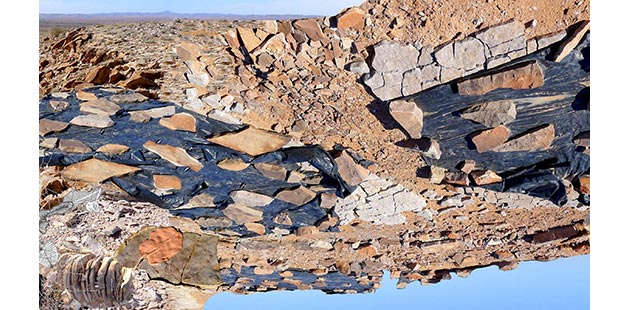 One of the most influential artists of her generation, Monash University Museum of Art (MUMA) will present Mexico-born, Berlin-based Mariana Castillo Deball’s first Australian exhibition, Re-playing Life’s Tape, from 5 October 2019.
One of the most influential artists of her generation, Monash University Museum of Art (MUMA) will present Mexico-born, Berlin-based Mariana Castillo Deball’s first Australian exhibition, Re-playing Life’s Tape, from 5 October 2019.
In this major exhibition, Castillo Deball asks us to consider the relationship between site, time and history and how these impact on the world we see. Working across disciplines and collaborating with experts in different fields, Castillo Deball creates art that examines the nexus of history and identity, drawing on museology, anthropology, archaeology and the philosophy of science.
Her art responds to a seemingly total state of globalization, in which Western traditions attempt to assimilate all others. The philosophical questions she contemplates are deeply rooted not only in the manifestation of her own indigenous Mexican identity, but also in the increasing importance of cultural specificity around the globe.
Castillo Deball uses installation, photography, sculpture and drawing to explore the role that objects play in understanding identity and history. Her work reconfigures historical and cultural material in ways that show the world to us anew. Engaging in prolonged periods of research and field work, she takes on the role of the explorer compiling found materials in a way that reveals new connections and meanings.
At the invitation of MUMA, this long-term project, first discussed in 2016, has seen Castillo Deball focus on the Ediacara Hills region of South Australia, significant for its rich and remarkably intact fossil record of ancient organisms that helped to change the way we understand early life on the planet.
In 2018, Castillo Deball undertook a site visit to the Ediacara Hills. Using ink rubbings and frottage, she documented the sandstone-based impressions, capturing images often more readable than the fossils themselves.
For the exhibition, she will present a material and virtual recreation of the site, combining archaeological objects, sculptural display systems and viewing technologies to consider the relationships between site, time and history.
Following her site visit, an international discovery was made in the Sahara Desert: the oldest organic pigment was extracted from bacteria fossils related to the time and environment of the Ediacaran period. This colour – a hot pink – will play a key role in the exhibition.
Mariana Castillo Deball was born in Mexico City in 1975. She earned a Masters of Fine Art from the Universidad Nacional Autónoma de México, Mexico City in 1997 and in 2003 completed a post-graduate program at the Jan Van Eyck Academie in Maastricht, the Netherlands. In 2011 she completed the Deutscher Akademischer Austausch Dienst residency in Berlin where she continues to live and work.
Castillo Deball was awarded the Prix de Rome, Amsterdam (2004), Zurich Art Prize (2012), Henry Moore Fellowship (2012), and the Preis der Nationalgalerie für Junge Kunst, Hamburger Bahnhof, Berlin (2013). In 2014 she presented the widely acclaimed solo exhibition Parergon at the Hamburger Bahnhof, Berlin.
Castillo Deball has had solo exhibitions at the Stedelijk Museum, Amsterdam (2004); Museo de Arte Carrillo Gil, Mexico City (2006); and Chisenhale Gallery, London (2013). Her work has also been included in the Shanghai Biennial (2008); Athens Biennial (2009); Venice Biennale (2011); Documenta, Kassel, Germany (2012); and Sao Paolo Biennale, Brazil (2016).
Replaying Life’s Tape has been curated by MUMA’s Senior Curator, Hannah Mathews and is presented as part of the 2019 Melbourne International Arts Festival.
Mariana Castillo Deball: Re-playing Life’s Tape
Monash University Museum of Art (MUMA), 900 Dandenong Road, Caulfield East
Exhibition: 5 October – 7 December 2019
Free entry
For more information, visit: www.monash.edu or www.festival.melbourne for details.
Image: Mariana Castillo Deball, Ediacara panorama, 2019 – courtesy the artist
